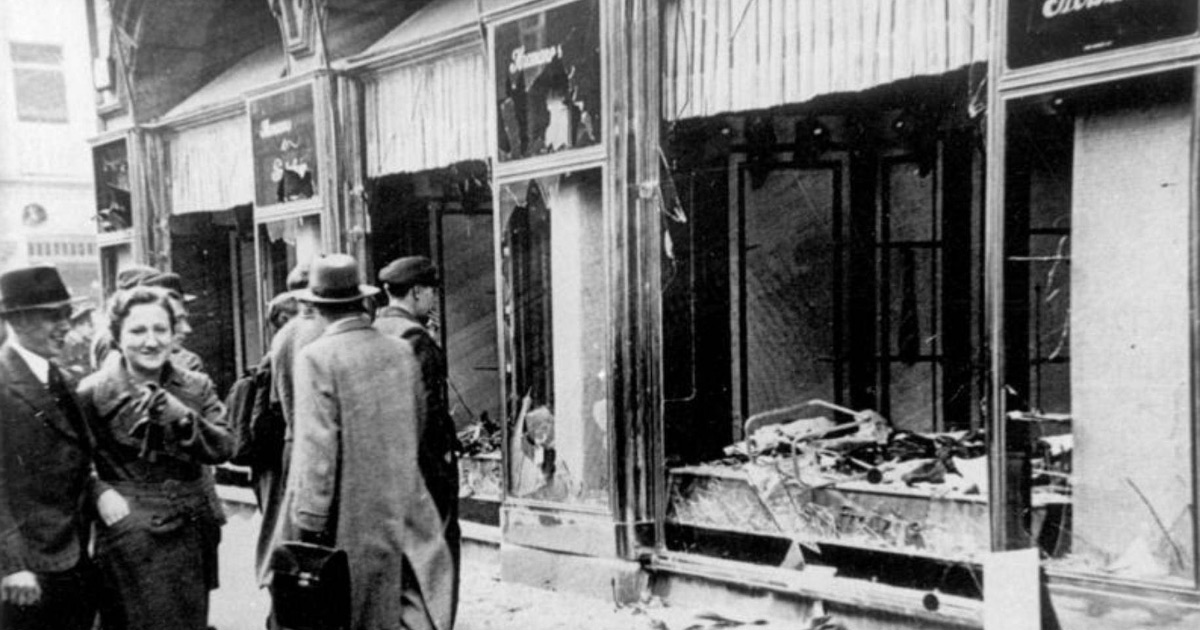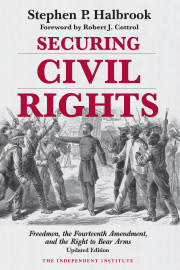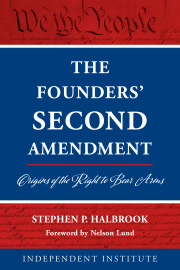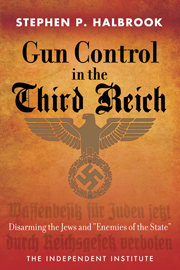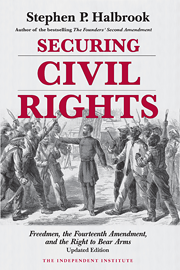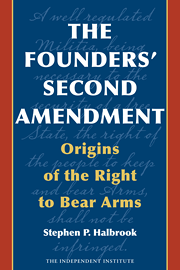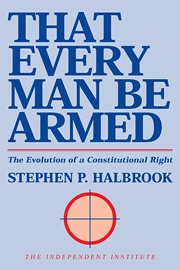Last weekend marked the 80th anniversary of Kristallnacht, the Night of the Broken Glass, when Nazi thugs went on a rampage against Germany’s Jewish community.
Aptly called “the day the Holocaust began,” Kristallnacht was met with virtually no resistance; the Hitler regime already had disarmed the more than half-a-million Jews who called Germany home at the time.
One of them was Alfred Flatow, the renowned German gymnast who had won three gold medals at the 1896 Olympics in Athens. In 1932, Flatow had registered three handguns as required by the democratic Weimar Republic. A year later, after Adolph Hitler seized power, such registration records fell into the wrong hands and were used to identify and disarm “enemies of the state.”
Massive searches and seizures of guns and “subversive” literature followed. As the terror intensified, Jews were deprived of the rights of citizenship. The Gestapo, the not-so-secret police, ordered that gun permits not be issued to Jews.
By 1938, the Nazis were expropriating the assets of Jews. To ensure they had no means of resistance, Jews were ordered to surrender their firearms.
“One of the first legal measures issued was an order by Heinrich Himmler, commander of all German police, forbidding Jews to possess any weapons whatever and imposing a penalty of twenty years confinement in a concentration camp upon every Jew found in possession of a weapon hereafter,” the New York Times reported on Nov. 11, 1938. This was the National Socialist version of “common-sense gun safety” measures, to use today’s jargon.
‘Common-Sense Gun Safety’
Dutifully, Flatow lined up in a Berlin police station with other Jews to surrender his handguns, which the police knew he had since they were properly registered. He was arrested. The arrest report recited the mantra: “Jews in possession of weapons are a danger to the German people.” Flatow was then turned over to the Gestapo.
In anticipation of the Kristallnacht assault, guns were similarly being confiscated from Jews all over Germany.
If the Nazis needed a pretext for the Kristallnacht terror, it came on November 7, when a Jewish teenager from Poland shot a German diplomat in Paris. When the diplomat died, Hitler ordered Propaganda Minister Joseph Goebbels to launch Kristallnacht.
Under the pretense of searching for weapons, brown-shirted goon squads vandalized Jewish homes, ransacked Jewish-owned businesses and torched synagogues. Jews were terrorized, beaten and murdered. Orders were sent to shoot anyone who resisted. Some 20,000 Jewish men were thrown into concentration camps and held for ransom.
The following year, Hitler invaded Poland, launching World War II. Among countless other atrocities in the occupied countries, from Poland to France, persons who failed to turn in their guns within 24 hours were executed.
In preparation for war, the U.S. Congress in 1941 passed the Property Requisition Act, which authorized the government to take certain property from industry. But in keeping with the Bill of Rights, the legislation prohibited gun registration and reaffirmed Second Amendment rights. Japan launched its attack on Pearl Harbor just weeks later.
Alfred Flatow’s footsteps can be followed from being required to wear the Star of David to the Final Solution. In 1942, he was deported to the Theresienstadt concentration camp in German-occupied Czechoslovakia, where he was murdered by starvation.
Gun Control = No Resistance
Flatow could not have prevented the Holocaust had he not registered his handguns or turned them in. Neither the Jews nor any of Hitler’s political opponents could have overthrown the Nazi dictatorship by themselves. That was because the Nazis had systematically disarmed everyone they considered a threat.
However, without the prior “gun control” measures, some form of armed resistance, whether by individuals or groups, would have been more likely. That was demonstrated by the heroic Warsaw ghetto uprising in 1943, which prompted Goebbels to exclaim that “it shows what is expected of Jews when they have arms in their hands.”
Today, gun registration and prohibition schemes are depicted as benign and progressive. Being inherently good, government should keep strict track of gun owners and ban guns it pejoratively labels “assault weapons,” we’re told.
Our Bill of Rights says otherwise. That’s why what happened to Alfred Flatow will never happen to Ryan Braun or Julian Edelman. There are reasons why history doesn’t always repeat itself.

